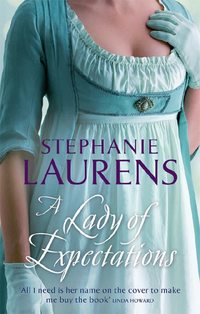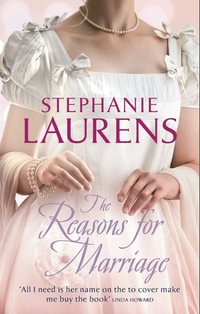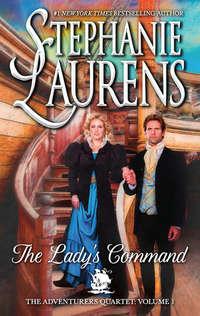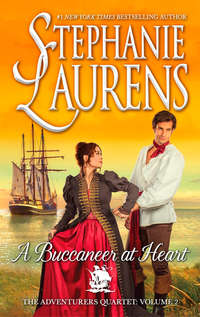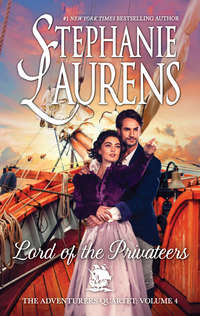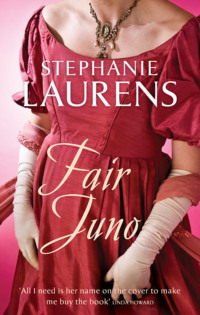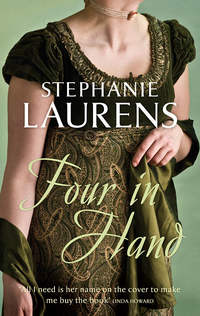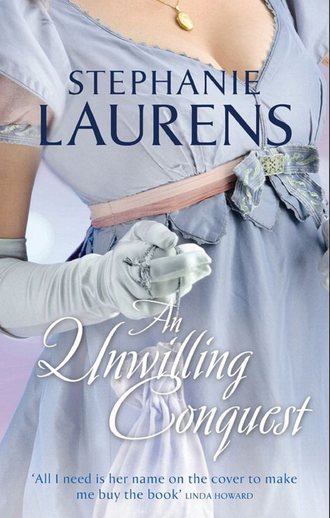
Полная версия
An Unwilling Conquest
She drew near and he lifted a brow. “Ready, Mrs Babbacombe?”
Lucinda turned to meet his gaze, wondering how such a soft drawl could so easily sound steely. “Thank you, Mr Lester.” She gave him her hand; he took it, drawing her to the side of the carriage. Lucinda blinked at the high step—the next instant, she felt his hands firm about her waist and she was lifted, effortlessly, to the seat.
Stifling her gasp, Lucinda met Heather’s gaze, filled with innocent anticipation. Sternly suppressing her fluster, Lucinda settled herself on the seat next to her stepdaughter. She had not, indeed, had much experience interacting with gentlemen of Mr Lester’s standing; perhaps such gestures were commonplace?
Despite her inexperience, she could not delude herself that her position, as it transpired, could ever be dismissed as commonplace. Her rescuer paused only to swing his greatcoat—adorned, she noted, with a great many capes—about his broad shoulders before following her into the curricle, the reins in his hands. Naturally, he sat beside her.
A bright smile firmly fixed on her lips, Lucinda waved Agatha goodbye, steadfastly ignoring the hard thigh pressed against her much softer limb, and the way her shoulder perforce had to nestle against his back.
Harry himself had not foreseen the tight squeeze—and found its results equally disturbing. Pleasant—but definitely disturbing. Backing his team, he asked, “Were you coming from Cambridge, Mrs Babbacombe?” He desperately needed distraction.
Lucinda was only too ready to oblige. “Yes—we spent a week there. We intended to leave directly after lunch but spent an hour or so in the gardens. They’re very fine, we discovered.”
Her accents were refined and untraceable, her stepdaughter’s less so, while those of her servants were definitely north country. The greys settled into their stride; Harry comforted himself that two miles meant less than fifteen minutes, even allowing for picking their way through the town. “But you’re not from hereabouts?”
“No—we’re from Yorkshire.” After a moment, Lucinda added, a smile tweaking her lips, “At the moment, however, I suspect we could more rightly claim to be gypsies.”
“Gypsies?”
Lucinda exchanged a smile with Heather. “My husband died just over a year ago. His estate passed into his cousin’s hands, so Heather and I decided to while away our year of mourning in travelling the country. Neither of us had seen much of it before.”
Harry stifled a groan. She was a widow—a beautiful widow newly out of mourning, unfixed, unattached, bar the minor encumbrance of a stepdaughter. In an effort to deny his mounting interest, to block out his awareness of her soft curves pressed, courtesy of Heather Babbacombe’s more robust figure, firmly against his side, he concentrated on her words. And frowned. “Where do you plan to stay in Newmarket?”
“The Barbican Arms,” Lucinda replied. “I believe it’s in the High Street.”
“It is.” Harry’s lips thinned; the Barbican Arms was directly opposite the Jockey Club. “Ah—have you reservations?” He slanted a glance at her face and saw surprise register. “It’s a race week, you know.”
“Is it?” Lucinda frowned. “Does that mean it’ll be crowded?”
“Very.” With every rakehell and womaniser who could make the journey from London. Harry suppressed the thought. Mrs Babbacombe was, he told himself, none of his business. Very definitely none of his business—she might be a widow and, to his experienced eye, ripe for seduction, but she was a virtuous widow—therein lay the rub. He was too experienced not to know such existed—indeed, the fleeting thought occurred that if he was to plot his own downfall, then a virtuous widow would be first choice as Cupid’s pawn. But he had recognised the trap—and had no intention of falling into it. Mrs Babbacombe was one beautiful widow he would do well to leave untouched—unsampled. Desire bucked, unexpectedly strong; with a mental curse, Harry shackled it—in iron!
The first straggling cottages appeared ahead. He grimaced. “Is there no acquaintance you have in the district with whom you might stay?”
“No—but I’m sure we’ll be able to find accommodation somewhere.” Lucinda gestured airly, struggling to keep her mind on her words and her senses on the late afternoon landscape. “If not at the Barbican Arms, then perhaps the Green Goose.”
She sensed the start that shot through him. Turning, she met an openly incredulous, almost horrified stare.
“Not the Green Goose.” Harry made no attempt to mute the decree.
It was received with a frown. “Why not?”
Harry opened his mouth—but couldn’t find the words. “Never mind why—just get it into your head that you cannot reside at the Green Goose.”
Intransigence flowed into her expression, then she put her pretty nose in the air and looked ahead. “If you will just set us down at the Barbican Arms, Mr Lester, I’m sure we’ll sort things out.”
Her words conjured a vision of the yard at the Barbican Arms—of the main hall of the inn as it would be at this moment—as Harry had experienced it at such times before. Jam-packed with males, broad-shouldered, elegant tonnish gentlemen, the vast majority of whom he would know by name. He certainly knew them by nature; he could just imagine their smiles when Mrs Babbacombe walked in.
“No.”
The cobbles of the High Street rang beneath the greys’ hooves.
Lucinda turned to stare at him. “What on earth do you mean?”
Harry gritted his teeth. Even with his attention on his horses as he negotiated the press of traffic in the main street of the horse capital of England, he was still aware of the surprised glances thrown their way—and of the lingering, considering looks bent on the woman by his side. Arriving with him, being seen with him, had already focused attention on her.
It was none of his business.
Harry felt his face harden. “Even if the Barbican Arms has rooms to spare—which they will not—it’s not suitable for you to stay in town while a race meeting’s on.”
“I beg your pardon?” After a moment of astonished surprise, Lucinda drew herself up. “Mr Lester—you have most ably rescued us—we owe you our gratitude. However, I am more than capable of organising our accommodation and stay in this town.”
“Gammon.”
“What?”
“You don’t know anything about staying in a town during a race-meet or you wouldn’t be here now.” Lips set in a thin line, Harry shot her an irritated glare. “Devil take it—look around you, woman!”
Lucinda had already noticed the large number of men strolling the narrow pavements. As her gaze swept the scene, she noted that there were many more on horseback and in the sporting carriages of every description thronging the thoroughfare. Gentlemen everywhere. Only gentlemen.
Heather was leaning close, shrinking against her, not used to being stared at and ogled. She raised hazel eyes filled with uncertainty to Lucinda’s face. “Lucinda…?”
Lucinda patted her hand. As she raised her head, she encountered a boldly appraising stare from a gentleman in a high-perch phaeton. Lucinda returned his scrutiny with a frosty glance. “Nevertheless,” she maintained. “If you will set us down at…”
Her words trailed away as she glimpsed, hanging above a broad archway just ahead, a signboard depicting a castle gateway. In that instant, the traffic parted; Harry clicked his reins and the curricle shot forward—straight past the archway.
Lucinda swivelled to peer at the sign as they moved steadily down the street. “That’s it—the Barbican Arms!” She turned to look at Harry. “You’ve passed it.”
Grim-faced, Harry nodded.
Lucinda glared at him. “Stop,” she ordered.
“You can’t stay in town.”
“I can!”
“Over my dead body!” Harry heard his snarl and inwardly groaned. He closed his eyes. What was happening to him? Opening his eyes, he glared at the woman beside him. Her cheeks were becomingly flushed—with temper. A fleeting thought of how she would look flushed with desire shot through his unwilling mind.
Something of his thoughts must have shown in his face—her blue eyes narrowed. “Are you proposing to kidnap us?” Her voice held the promise of a long and painful death.
The end of the High Street appeared; the traffic thinned. Harry flicked his leader’s ear and the greys surged. As the sound of hooves on cobbles died behind them, he glanced down at her and growled, “Consider it forcible repatriation.”
Chapter Two
“Forcible repatriation?”
Harry shot her a narrow-eyed glare. “You don’t belong in a race-town.”
Lucinda glared back. “I belong wherever I choose to stay, Mr Lester.”
His face set in uncompromising lines, Harry looked back at his team. Lucinda looked ahead, frowning direfully.
“Where are you taking us?” she eventually demanded.
“To stay with my aunt, Lady Hallows.” Harry glanced at her. “She lives a little way out of town.”
It had been many years since she’d allowed anyone to order her life. Nose in the air, Lucinda held to dignified disapproval. “How do you know she won’t already have visitors?”
“She’s a widow of long standing and lives quietly.” Harry checked his team and turned onto a side road. “She has a whole Hall to spare—and she’ll be delighted to make your acquaintance.”
Lucinda sniffed. “You can’t know that.”
The smile he bent on her was infinitely superior.
Resisting the urge to gnash her teeth, Lucinda pointedly looked away.
Heather had perked up the instant they’d quit town; she smiled when Lucinda glanced her way, clearly restored to her usual sunny humour and unperturbed by the unexpected alteration to their plans.
Feeling distinctly huffy, Lucinda looked ahead. It was, she suspected, pointless to protest—at least, not until she’d met Lady Hallows. Until then, there was nothing she could do to regain the ascendancy. The infuriating gentleman beside her had the upper hand—and the reins. Her gaze flicked sideways, to where his hands, covered by soft doeskin gloves, dextrously managed the ribbons. Long slim fingers and slender palms. She’d noted that earlier. To her horror, the memory evoked a shiver—she had to fight to quell it. With him so close, he would very likely feel it—and, she suspected, would unhesitatingly guess its cause.
Which would leave her feeling embarrassed—and even more deeply disturbed. He evoked a most peculiar response in her—it had yet to fade, despite her irritation at his autocratic interference. It was a distinctly novel feeling—one she wasn’t at all sure she appreciated.
“Hallows Hall.”
She looked up to discover a pair of imposing gateposts which gave onto a shady avenue lined with elms. The gravelled drive wound gently along a slight ridge, then dipped to reveal a pleasant vista of rolling lawns surrounding a reed-fringed lake, the whole enclosed by large trees.
“How pretty!” Heather looked about in delight.
The Hall, a relatively recent structure in honey-coloured stone, sat on a rise above the drive, which wound past the front steps before curving around the corner of the house. A vine stretched green fingers over the stone. There were roses in abundance; ducks clacked from the lake.
An ancient retainer came ambling up as Harry drew his team to a halt.
“Thought as we’d see you this week, young master.”
Harry grinned. “Good evening, Grimms. Is my aunt at home?”
“Aye—that she is—and right pleased she’ll be to see you. Evening, miss. Miss.” Grimms doffed his cap to Lucinda and Heather.
Lucinda’s answering smile was distant. Hallows Hall stirred long-forgotten memories of life before her parents had died.
Harry descended and helped her down. After helping Heather to the ground, he turned to see Lucinda looking about her, a wistful expression on her face. “Mrs Babbacombe?”
Lucinda started. Then, with a half-grimace and a frosty glance, she placed her hand on his arm and allowed him to lead her up the steps.
The door was flung open—not by a butler, although a stately personage of that persuasion hovered in the shadows—but by a gaunt, angular-featured woman a good two inches taller than Lucinda and decidedly thinner.
“Harry, m’boy! Thought you’d be here. And who’s this you’ve brought?”
Lucinda found herself blinking into dark blue eyes, shrewd and intelligent.
“But what am I about? Come in, come in.” Ermyntrude, Lady Hallows, waved her guests into the hall.
Lucinda stepped over the threshold—and was immediately enveloped in the warm, elegant yet homey atmosphere.
Harry took his aunt’s hand and bowed over it, then kissed her cheek. “As elegant as ever, Em,” he said, scanning her topaz gown.
Em’s eyes opened wide. “Flummery? From you?”
Harry pressed her hand warningly as he released it. “Allow me to present Mrs Babbacombe, Aunt. Her carriage broke a wheel just outside town. I had the honour of driving her in. She had some idea of staying in town but I prevailed upon her to change her mind and give you the benefit of her company.”
The words tripped glibly from his tongue. Rising from her curtsy, Lucinda shot him a chilly glance.
“Capital!” Em beamed and took Lucinda’s hand. “My dear, you don’t know how bored I sometimes get, stuck out here in the country. And Harry’s quite right—you can’t possibly stay in town during a meet—not at all the thing.” Her blue eyes switched to Heather. “And who’s this?”
Lucinda made the introduction and Heather, smiling brightly, bobbed a curtsy.
Em put out a hand and tipped Heather’s chin up the better to view her face. “Hmm—quite lovely. You’ll do well in a year or two.” Releasing her, Em frowned. “Babbacombe, Babbacombe…” She glanced at Lucinda. “Not the Staffordshire Babbacombes?”
Lucinda smiled. “Yorkshire.” When her hostess only frowned harder, she felt compelled to add, “I was a Gifford before my marriage.”
“Gifford?” Em’s eyes slowly widened as she studied Lucinda. “Great heavens! You must be Melrose Gifford’s daughter—Celia Parkes was your mother?”
Surprised, Lucinda nodded—and was promptly enveloped in a scented embrace.
“Good gracious, child—I knew your father!” Em was in transports. “Well—I was a bosom-bow of his elder sister, but I knew all the family. Naturally, after the scandal, we heard very little of Celia and Melrose, but they did send word of your birth.” Em wrinkled her nose. “Not that it did much good—stiff-necked lot, your grandparents. On both sides.”
Harry blinked, endeavouring to absorb this rush of information. Lucinda noticed, and wondered how he felt about rescuing the outcome of an old scandal.
“Just fancy!” Em was still in alt. “I never thought to set eyes on you, m’dear. Mind you, there’s not many left but me who’d remember. You’ll have to tell me the whole story.” Em paused to draw breath. “Now then! Fergus will get your luggage and I’ll show you up to your rooms—after a dish of tea—you must be in need of refreshment. Dinner’s at six so there’s no need to hurry.”
Together with Heather, Lucinda found herself hustled towards an open doorway—a drawing-room lay ahead. On the threshold she hesitated and glanced back, as did Em behind her.
“You’re not staying, are you, Harry?” Em asked.
He was tempted—sorely tempted. His gaze not on his aunt but on the woman beside her, Harry forced himself to shake his head. “No.” With an effort he shifted his gaze to his aunt’s face. “I’ll call sometime during the week.”
Em nodded.
Prompted by she knew not what, Lucinda turned and re-crossed the hall. Their rescuer stood silently and watched her approach; she steadfastly ignored the odd tripping of her heart. She halted before him, calmly meeting his green gaze. “I don’t know how to thank you for your help, Mr Lester. You’ve been more than kind.”
His lips slowly curved; again, she found herself fascinated by the movement.
Harry took the hand she held out to him and, his eyes on hers, raised it to his lips. “Your rescue was indeed my pleasure, Mrs Babbacombe.” The sudden widening of her eyes as his lips touched her skin was payment enough for the consequent hardships. “I’ll ensure that your people know where to find you—your maids will arrive before nightfall, I’m sure.”
Lucinda inclined her head; she made no effort to retrieve her fingers from his warm grasp. “Again, you have my thanks, sir.”
“It was nothing, my dear.” His eyes on hers, Harry allowed one brow to rise. “Perhaps we’ll meet again—in a ballroom, maybe? Dare I hope you’ll favour me with a waltz if we do?”
Graciously, Lucinda acquiesced. “I would be honoured, sir—should we meet.”
Belatedly reminding himself that she was a snare he was determined to avoid, Harry took a firm grip on his wayward impulses. He bowed. Releasing Lucinda’s hand, he nodded to Em. With one last glance at Lucinda, he strolled gracefully out of the door.
Lucinda watched the door shut behind him, a distant frown in her eyes.
Em studied her unexpected guest, a speculative glint in hers.
Agatha’s been with me forever,” Lucinda explained. “She was my mother’s maid when I was born. Amy was an under-maid at the Grange—my husband’s house. We took her with us so that Agatha could train her to act as maid for Heather.”
“Just as well,” Heather put in.
They were in the dining-room, partaking of a delicious meal prepared, so Em had informed them, in honour of their arrival. Agatha, Amy and Sim had arrived an hour ago, conveyed by Joshua in a trap borrowed from the Barbican Arms. Joshua had returned to Newmarket to pursue the repairs of the carriage. Agatha, taken under the wing of the portly housekeeper, Mrs Simmons, was resting in a cheery room below the eaves, her ankle pronounced unbroken but badly sprained. Amy had thus had to assist both Lucinda and Heather to dress, a task at which she had acquitted herself with honours.
Or so Em thought as she looked down the table. “So,” she said, patting her lips with her napkin then waving Fergus and the soup tureen away. “You may start at the beginning. I want to know all about you since your parents died.”
The sheer openness of the request robbed it of any rudeness. Lucinda smiled and laid aside her spoon; Heather was dipping into the tureen for the third time, much to Fergus’s delight. “As you know, what with both families disowning my parents, I hadn’t had any contact with my grandparents. I was fourteen at the time of the accident. Luckily, our old solicitor hunted up my mother’s sister’s address—she agreed to take me in.”
“Now let’s see.” Em’s eyes narrowed as she surveyed the past. “That would be Cora Parkes that was?”
Lucinda nodded. “If you recall, the Parkes family fortunes had taken a downturn sometime after my parents married. They’d retired from Society and Cora had married a mill-owner in the north—a Mr Ridley.”
“Never say so!” Em was enthralled. “Well, well—how the mighty did fall. Your aunt Cora was one of the most intransigent when it came to any question of reconciliation with your parents.” Em lifted her thin shoulders. “Fate’s revenge, I dare say. So you lived with them until your marriage?”
Lucinda hesitated, then nodded.
Em noticed; her eyes sharpened, then flicked to Heather. Lucinda saw—and hastened to explain. “The Ridleys weren’t exactly happy to have me. They only agreed to house me, thinking to use my talents as governess to their two daughters and then to broker my marriage as soon as maybe.”
For a moment, Em stared. Then she snorted. “Doesn’t surprise me. That Cora was ever out for her own gain.”
“When I was sixteen, they arranged a marriage with another mill-owner, a Mr Ogleby.”
“Ugh!” Heather looked up from her soup to shudder artistically. “He was a horrible old toad,” she blithely informed Em. “Luckily, my father heard about it—Lucinda used to come and give me lessons. So he married Lucinda instead.” Having done her bit for the conversation, Heather returned to her soup.
Lucinda smiled affectionately. “Indeed, Charles was my saviour. I only recently learned that he bought off my relatives in order to marry me—he never told me.”
Em snorted approvingly. “Glad to hear they’ve some gentlemen in those parts. So you became Mrs Babbacombe and lived at…the Grange, was it?”
“That’s right.” Heather had finally relinquished the soup; Lucinda paused to serve herself from the platter of turbot Fergus offered. “To all appearances Charles was a well-to-do gentleman of moderate estate. In reality, however, he owned a considerable collection of inns up and down the country. He was really very wealthy but preferred a quiet existence. He was close to fifty when we married. As I grew older, he taught me all about his investments and how to manage them. He was ill for some years—the end was a relief when it came—but because of his foresight, I was able to handle most of the work for him.”
Lucinda looked up to find her hostess staring at her.
“Who owns the inns now?” Em asked.
Lucinda smiled. “We do—Heather and I. The Grange, of course, went to Charles’s nephew, Mortimer Babbacombe, but Charles’s private fortune wasn’t part of the entail.”
Em sat back and regarded her with frank approval. “And that’s why you’re here—you own an inn in Newmarket?”
Lucinda nodded. “After the will was read, Mortimer asked us to vacate the Grange within the week.”
“The blackguard!” Em glared. “What sort of a way is that to treat a grieving widow?”
“Well,” Lucinda held up a hand. “I did offer to leave as soon as he wished—although I hadn’t thought he’d be in such a hurry. He’d never even visited before—not really.”
“So you found yourselves out on your ears in the snow?” Em was incensed.
Heather giggled. “It really turned out most fortuitously in the end.”
“Indeed.” Lucinda nodded, pushing her plate away. “With nothing organised, we decided to remove to one of our inns—one a little way away from the Grange, a place we weren’t known. Once there, I realised the inn was far more prosperous than I would have guessed from the accounts our agent had recently presented. Mr Scrugthorpe was a new man—Charles had been forced to appoint a new agent a few months before he died when our old Mr Matthews passed on.” Lucinda frowned at the trifle Fergus placed before her. “Unfortunately, Charles interviewed Scrugthorpe on a day he was in great pain and I had to be in town with Heather. To cut a long story short, Scrugthorpe had falsified the accounts. I called him in and dismissed him.”
Lifting her gaze to her hostess’s face, Lucinda smiled. “After that, Heather and I decided that travelling the country getting to know our inns was an excellent way to see out our year of mourning. It was exactly the sort of enterprise of which Charles would have approved.”
Em snorted—this snort clearly signified her appreciation of Charles’s good sense. “Seems to have been a very able man—your father, miss.”
“He was a dear.” Heather’s open face clouded and she blinked rapidly, then looked down.
“I’ve appointed a new agent—a Mr Mabberly.” Lucinda smoothly covered the awkward moment. “He’s young but extremely efficient.”
“And goes in awe of Lucinda,” Heather offered, looking up to help herself to a second scoop of trifle.
“As he should,” Em replied. “Well, Miss Gifford as was—you’ve certainly done your parents proud thus far. A capable lady of independent means at what—twenty-six?”
“Twenty-eight.” Lucinda’s smile was crooked. There were times, such as today, when she suddenly wondered if life had passed her by.
“A very fair achievement,” Em declared. “I don’t hold with women being helpless.” She eyed Heather’s at last empty plate. “And if you’ve finally finished, miss, I suggest we retire to the drawing-room. Do either of you play the pianoforte?”
They both did and gladly entertained their hostess with various airs and sonatas, until Heather fell to yawning. At Lucinda’s suggestion she retired, passing the tea trolley in the doorway.


